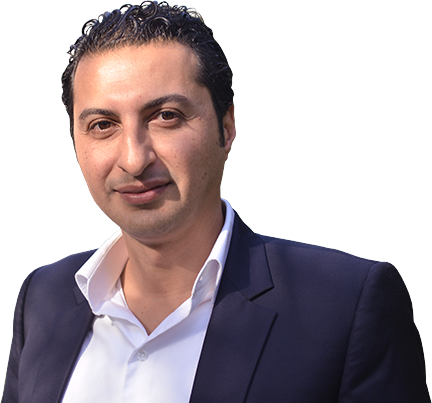Why local Emirati banks are bucking global trends and achieving impressive growth
- UAE banks have responded to the increased pace in government infrastructure projects by aggressively marketing their existing products, and offering new ones
- To maintain momentum, local banks should aggressively pursue reforms by enhancing their systems and moving towards more efficient payment infrastructures
When it comes to business news and regional economic analysis, government and business leaders in the GCC turn to Gulf Business. Tahseen Consulting is honored to have its work highlighted in the publication’s October issue. We have posted the full article below.
We built a realistic regulatory ask for policymakers by creating stakeholder consensus.
Learn more about our Government Relations practice here.
Recently, Tahseen Consulting’s Chief Executive Officer, Walid Aradi, spoke with Ryan Harrison from Gulf Business regarding his thoughts on the competitive landscape evolving in the UAE retail and commercial banking sector. In a wide-ranging discussion, Aradi explained some of the reasons why local banks such as Abu Dhabi Commercial Bank, Emirates NBD, Mashreq, and First Gulf bank have been performing well while internationals have been downsizing their operations.
Gulf Business: What is driving this shift and how long will it continue?
Aradi: As a consequence of the economic crisis, some international outfits reassessed their presence in the region and redirected their resources back to their home markets, as they were seeking to limit their exposure, focus on rebuilding their competitive advantage in their home countries, and improve their balance sheets. This left the local banks, which came off a period of consolidation, ready to pick up the slack should the economic conditions improve.
With economic growth hovering around 4%, and an increased appetite to lend due to the introduction of loan caps and more defined lending criteria, banks in the UAE responded to the increased pace in government infrastructure projects by aggressively marketing their existing products, and offering new ones.
Gulf Business: How much business is for the taking?
Aradi: The UAE Monthly Banking Indicators, published by the Central Bank, show that despite experiencing modest year on year growth of 2.6% in 2012 in loans and advances, the increase in the first seven months of 2013 exceeded 4.3%. Championing this growth were local banks such as ADCB, Emirates NBD, Mashreq and First Gulf banks, which competed aggressively to fill the gap left behind by the downsizing of operations among some international banks.
While local banks managed to increase their share of the corporate and consumer lending markets, they will find it increasingly difficult to maintain past levels of profitability.
This is because while the growth in the economy is expected to be solid over the next two years, it will not reach the spectacular levels posted in 2005 or 2007, thus limiting the ability of local banks to expand their revenues. Additionally, changes to capital and liquidity requirements have raised cost pressures on the banking sector.
Gulf Business: How can local banks improve their products and services to build their corporate lending business?
To maintain their margins, local banks must bolster their revenues.
They can do this by expanding their product offerings, enhancing services to higher margin segments of the business, building upon their knowledge of the local market from operational and marketing perspectives, attracting global talent, and forming alliances with global banks to overcome their limited international footprint. On the other hand, local banks should aggressively pursue reforms to their business strategies by enhancing their systems and moving towards more efficient payment infrastructures.
Without fully capitalizing on the opportunity to solidify their place in the market, local banks will find themselves having to fend off pressures from global banks when their appetite to invest in emerging markets returns as a consequence of improved market conditions in their home countries.







































